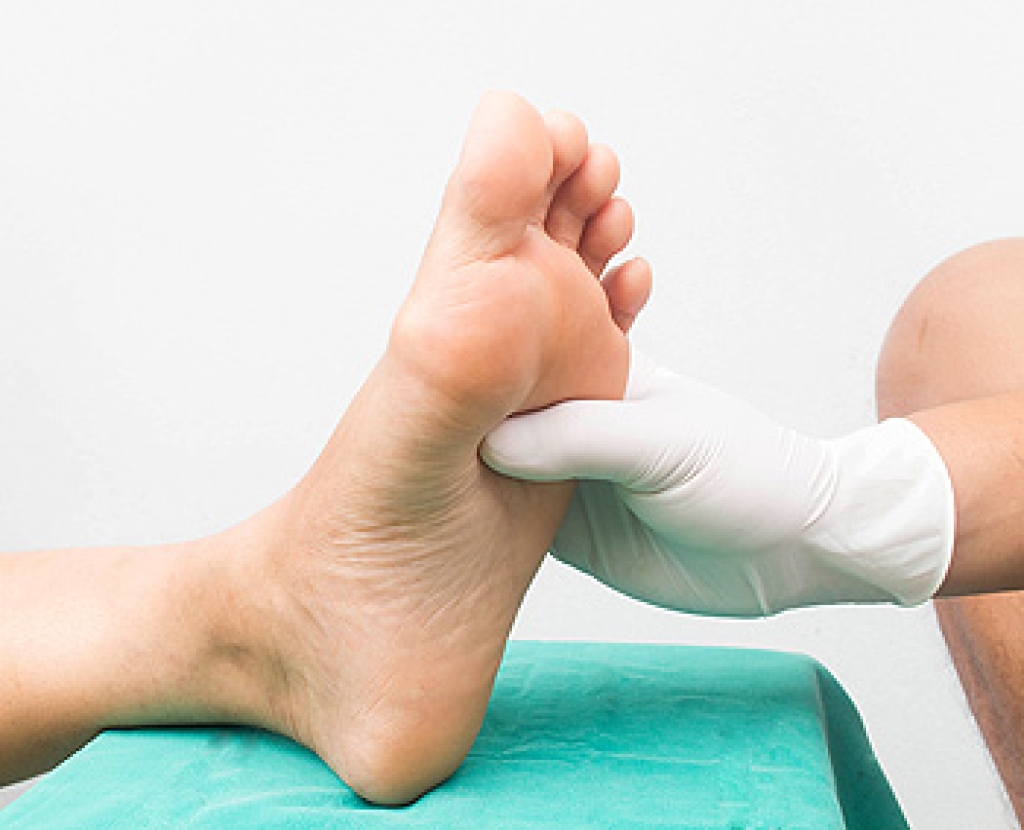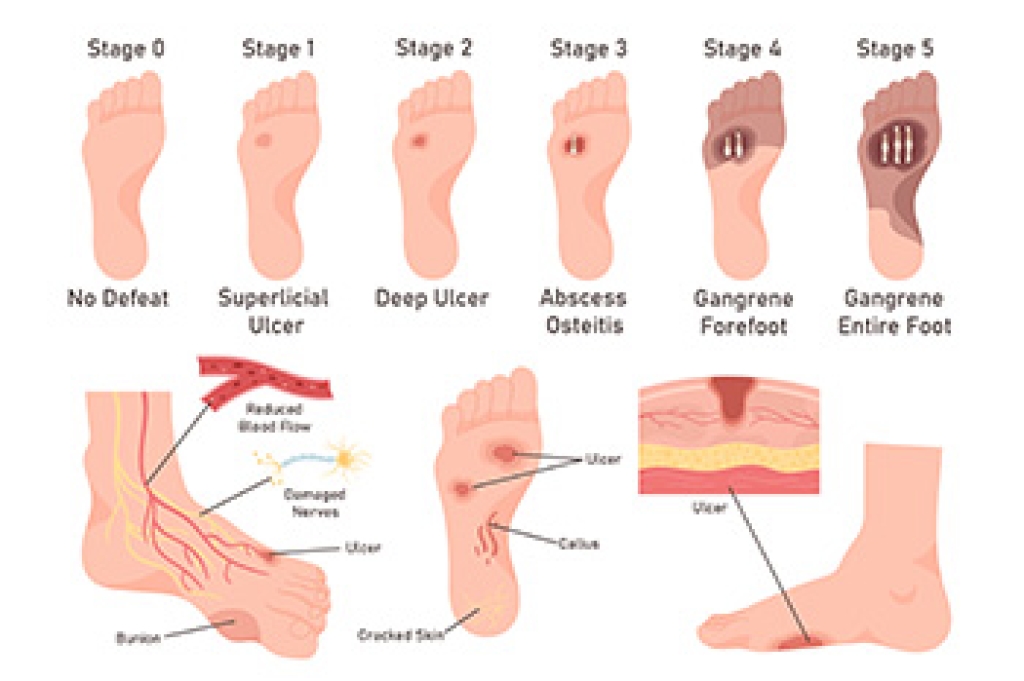Connect With Us
Blog
Blog
Tips for Selecting Running Shoes

Choosing the right running shoe plays an important role in foot comfort and preventing injuries. Start by considering where you run, as road, trail, and treadmill surfaces place different demands on the feet. Proper fit is essential, with enough room in the toe box to prevent pressure on the toes, while still holding the heel securely. Cushioning should match your body weight and running style, because too little may increase impact stress and too much can affect stability. Pay attention to shoe flexibility and how the sole bends, since this influences foot motion. Replacing running shoes is important because worn materials reduce protection for the feet. A podiatrist can evaluate your foot structure, gait, and running habits to recommend features that support movement and reduce strain. If you experience foot pain after running, it is suggested that you make an appointment with a podiatrist for an exam and treatment options.
For more information about walking shoes versus running shoes, consult with Manisha Mehta, DPM from Detroit, MI. Our doctor can measure your feet to determine what your needs are and help you find an appropriate pair of footwear.
Foot Health: The Differences between Walking & Running Shoes
There are great ways to stay in shape: running and walking are two great exercises to a healthy lifestyle. It is important to know that running shoes and walking shoes are not interchangeable. There is a key difference on how the feet hit the ground when someone is running or walking. This is why one should be aware that a shoe is designed differently for each activity.
You may be asking yourself what the real differences are between walking and running shoes and the answers may shock you.
Differences
Walking doesn’t involve as much stress or impact on the feet as running does. However, this doesn’t mean that you should be any less prepared. When you’re walking, you land on your heels and have your foot roll forward. This rolling motion requires additional support to the feet.
Flexibility – Walking shoes are designed to have soft, flexible soles. This allows the walker to push off easily with each step.
If you have any questions, please feel free to contact our office located in Detroit, MI . We offer the newest diagnostic and treatment technologies for all your foot care needs.
Why Diabetic Foot Care Exams Matter

Diabetic foot care exams play an important role in preventing serious complications for people with diabetes. Ongoing high blood sugar can cause nerve damage and poor circulation, leading to numbness, tingling, burning, or slow-healing wounds. Feet may look dry, cracked, or swollen. Sometimes they develop pressure points and ulcers. Because sensation may be reduced, the feet might not feel pain even when injury or infection is present. A podiatrist can help from the start by performing a thorough exam that evaluates skin health, circulation, nerve function, and nail condition. Early diagnosis allows for timely treatment, such as nail and callus care, wound management, and footwear guidance. Ongoing exams help monitor changes and reduce the risk of infection or ulcers. If you have diabetes and are experiencing foot problems, it is suggested that you make an appointment with a podiatrist.
Diabetic foot care is important in preventing foot ailments such as ulcers. If you are suffering from diabetes or have any other concerns about your feet, contact Manisha Mehta, DPM from Detroit, MI. Our doctor can provide the care you need to keep you pain-free and on your feet.
Diabetic Foot Care
Diabetes affects millions of people every year. The condition can damage blood vessels in many parts of the body, especially the feet. Because of this, taking care of your feet is essential if you have diabetes, and having a podiatrist help monitor your foot health is highly recommended.
The Importance of Caring for Your Feet
- Routinely inspect your feet for bruises or sores.
- Wear socks that fit your feet comfortably.
- Wear comfortable shoes that provide adequate support.
Patients with diabetes should have their doctor monitor their blood levels, as blood sugar levels play such a huge role in diabetic care. Monitoring these levels on a regular basis is highly advised.
It is always best to inform your healthcare professional of any concerns you may have regarding your feet, especially for diabetic patients. Early treatment and routine foot examinations are keys to maintaining proper health, especially because severe complications can arise if proper treatment is not applied.
If you have any questions, please feel free to contact our office located in Detroit, MI . We offer the newest diagnostic and treatment technologies for all your foot care needs.
Keeping Your Baby’s Toenails Healthy and Safe

Infant toenails are soft and delicate, so they benefit from gentle, consistent attention as your baby grows. Their nails often look thin or slightly uneven, which is normal in the early months. Because babies move constantly, it helps to check their feet regularly for snags that could catch on clothing or scratch their skin. Trimming should only be done when the nails become long enough to curl or snag. Using small baby nail scissors or clippers and cutting straight across keeps the process safe and comfortable. After bath time is usually the easiest moment, since warm water softens the nails. If you notice redness, swelling, or sensitivity surrounding a nail, it may be the start of an ingrown toenail or mild infection. If these changes continue or your baby seems uncomfortable, it is suggested that you see a podiatrist for proper evaluation and support.
Ingrown toenails may initially present themselves as a minor discomfort, but they may progress into an infection in the skin without proper treatment. For more information about ingrown toenails, contact Manisha Mehta, DPM of Detroit, MI. Our doctor can provide the care you need to keep you pain-free and on your feet.
Ingrown Toenails
Ingrown toenails are caused when the corner or side of a toenail grows into the soft flesh surrounding it. They often result in redness, swelling, pain, and in some cases, infection. This condition typically affects the big toe and may recur if it is not treated properly.
Causes
- Improper toenail trimming
- Genetics
- Improper shoe fitting
- Injury from pedicures or nail picking
- Abnormal gait
- Poor hygiene
You are more likely to develop an ingrown toenail if you are obese, have diabetes, arthritis, or have any fungal infection in your nails. Additionally, people who have foot or toe deformities are at a higher risk of developing an ingrown toenail.
Symptoms
Some symptoms of ingrown toenails are redness, swelling, and pain. In rare cases, there may be a yellowish drainage coming from the nail.
Treatment
Ignoring an ingrown toenail can have serious complications. Infections of the nail border can progress to a deeper soft-tissue infection, which can then turn into a bone infection. You should always speak with your podiatrist if you suspect you have an ingrown toenail, especially if you have diabetes or poor circulation.
If you have any questions, please feel free to contact our office located in Detroit, MI . We offer the newest diagnostic and treatment technologies for all your foot care needs.
Stages of a Diabetic Foot Ulcer

A diabetic foot ulcer is an open sore that develops due to nerve damage, poor circulation, and pressure on the feet in people with diabetes. The process often begins with a normal foot that appears healthy, but may already have reduced sensation. An at-risk foot shows changes like numbness, dry skin, or calluses that increase the chance of skin breakdown. A foot with an ulcer has an open wound that may be slow to heal and can worsen without proper care. An infected foot develops redness, swelling, drainage, and increased pain, raising the risk of serious complications. A podiatrist plays a critical role in identifying each stage early, providing wound care, reducing pressure, and preventing infection. If you have diabetes, it is suggested that you schedule regular visits with a podiatrist to protect your feet, prevent ulcers, and help you in managing his serious condition.
Wound care is an important part in dealing with diabetes. If you have diabetes and a foot wound or would like more information about wound care for diabetics, consult with Manisha Mehta, DPM from Detroit, MI. Our doctor will assess your condition and provide you with quality foot and ankle treatment.
What Is Wound Care?
Wound care is the practice of taking proper care of a wound. This can range from the smallest to the largest of wounds. While everyone can benefit from proper wound care, it is much more important for diabetics. Diabetics often suffer from poor blood circulation which causes wounds to heal much slower than they would in a non-diabetic.
What Is the Importance of Wound Care?
While it may not seem apparent with small ulcers on the foot, for diabetics, any size ulcer can become infected. Diabetics often also suffer from neuropathy, or nerve loss. This means they might not even feel when they have an ulcer on their foot. If the wound becomes severely infected, amputation may be necessary. Therefore, it is of the upmost importance to properly care for any and all foot wounds.
How to Care for Wounds
The best way to care for foot wounds is to prevent them. For diabetics, this means daily inspections of the feet for any signs of abnormalities or ulcers. It is also recommended to see a podiatrist several times a year for a foot inspection. If you do have an ulcer, run the wound under water to clear dirt from the wound; then apply antibiotic ointment to the wound and cover with a bandage. Bandages should be changed daily and keeping pressure off the wound is smart. It is advised to see a podiatrist, who can keep an eye on it.
If you have any questions please contact our office located in Detroit, MI . We offer the newest diagnostic and treatment technologies for all your foot and ankle needs.
Blog Archives
- 2026
- 2025
- 2024
- 2023
- 2022

